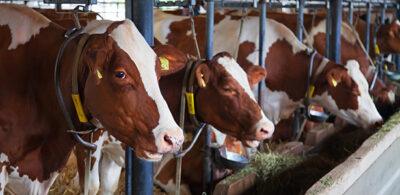
Image source: TheAtlantic.com
The overuse of antibiotics in livestock has had harmful consequences for humans, and Congress is unwilling to do anything about it.
That’s according to a new study that says Congress has blocked all efforts to restrict the feeding of antibiotics used in human medicine to livestock, even as such medicines have grown less effective in fighting human infections. The heavy usage of the drugs in livestock, the study says, has produced antibiotics-resistant bacteria. The drugs are primarily used to make the animals bigger.
Most scientists say feeding medically important antibiotics to livestock plays a role in bacteria evolving to beat the drugs, putting humans at risk, according to the study, released by the Johns Hopkins Center for a Livable Future.
“Our worst fears were confirmed,’’ Bob Martin, executive director of the Johns Hopkins Center for a Livable Future, told The Washington Post.
Incredibly, 80 percent of the antibiotics sold in this country are given to animals within the meat and poultry industry.
The study, called “Industrial Food Animal Production in America,” comes five years after a 2008 report by a Pew Charitable Trusts commission of scientists working through the Johns Hopkins Bloomberg School of Public Health. That report also found the practice of plumping up animals by feeding them antibiotics all day makes such drugs less effective in humans.
An Old-Fashioned Approach To Modern Homesteading – No Farm Required…
Bob Martin told the newspaper that soon-to-be-implemented FDA guidelines would ban the use of antibiotics to plump up food but still allow it for disease control. But the definition of disease control is so loose, he said, nothing will really change.
“In a couple of areas, the Obama administration started off with good intentions. But when industry pushed back, even weaker rules were issued,” he said. “We saw undue influence everywhere we turned.”
Emily Meredith, a spokeswoman for the Animal Agricultural Alliance, a coalition of food producers, said that producers tend to disagree with most of the report. She said they have made progress and have been using antibiotics judiciously.
The agricultural alliance released its own report that defended its techniques as ethical and essential to feeding a growing population, the Post said. The alliance called antibiotics a set of tools that help producers raise livestock in humane, environmentally cautious ways. The vast majority of antibiotics approved for use in livestock are not used for human medicine “and therefore have little to no effect on the contribution to antibiotic resistance in humans,” the report said.
Shelly Burgess, an FDA spokeswoman, said that the agency plans to phase out the use of medically important antibiotics for non-medical uses in livestock.
“FDA believes these drugs should be used only in situations where they are necessary for treating, controlling, or preventing a specifically identified disease, and only under the oversight of a veterinarian,” she said.
But the Johns Hopkins report says the definition of “oversight by a veterinarian” was changed and doesn’t mean much, the Post noted.
Rep. Louise M. Slaughter (D-N.Y.), a microbiologist, has been trying for more than a decade to get the Preservation of Antibiotics for Medical Treatment Act through Congress. But it didn’t pass when Democrats controlled the House, and Slaughter told the Post there was no chance the Republicans would let it through, either. As previously reported by Off The Grid News, Slaughter’s bill would “ban the routine overuse of eight critical classes of antibiotics” on healthy animals.
Mary Wilson of the Harvard School of Public Health told the newspaper that the current use of antibiotics for livestock could mean that people “will see common infections become fatal” — just as happened before antibiotics were created.
Slaughter said that regulators and lawmakers have been bowing to industry pressure for a long time. She gave the example of a 1970s announcement by the FDA that antibiotics then used in both humans and animals should not be routinely fed to livestock. But the FDA has backed up on the issue since then, “because the lobbying has been fierce.”
 Off The Grid News Better Ideas For Off The Grid Living
Off The Grid News Better Ideas For Off The Grid Living




